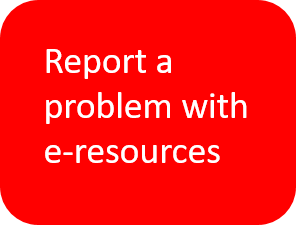Scopus AI
Join "Scopus AI for Aalto University" webinar on Sep 22, 2025 11:00 AM. Read more and register!
Full-text and reference databases
Full-text databases contain full-text versions of the required materials (e.g. electronic journals).
Reference databases point towards the required information, but you will still have to retrieve the information from the original document.
Citation databases
Web of Science and Scopus are multidisciplinary reference databases that offer information about articles as well as their connections by way of citations and references. Web of Science and Scopus databases allow you to search for the most cited articles on a topic, and citations of a specific article. You can check the availability of full-text versions of the articles via library linking (ViewIt@Aalto).
Also Google Scholar - Google's search engine specialised in searching for scholarly information - contains citation information.
What is a scholarly article?
Scholarly articles are published in scholarly journals (academic journals). Scholarly articles are written by experts in a particular academic discipline and intended for an academic audience.
The quality of articles in the majority of scholarly journals is guaranteed by peer review. The submitted articles are reviewed by other scholars in the field, and they also decide on their publication.
Many databases allow you to limit your search to academic, scolarly or peer-reviewed articles.
Scopus and Web of Science - recommendable databases
The reference databases available at the Aalto University Library enable you to go through a large amount of data quickly. For example the Web of Science and Scopus databases contain references for several publisher-specific e-journal databases that are very useful at the early stages of your information-seeking. The most current scientific information and research results are normally published in scientific journals. Reference databases allow you to search for new material quickly by using different referencing and citation links. Reference databases mainly index e-journals and conference publications, so retrieving information on books and theses is more efficient via other information databases.
Scopus is a multidisciplinary reference and abstract database that covers over 15,000 scientific journals from over 4,000 publishers. As Scopus selects the publications it indexes, the indexes can also be considered as quality recommendations for the materials.
Web of Science is a multidisciplinary database with article references for over 12,000 scientific journals (covering technical, natural, social and humanist sciences). With the reference data the Web of Science also serves as a central measuring tool for the impact of publications.
Both the Web of Science and Scopus allow you to arrange your search results in ascending order based on how many times the articles have been cited. You can view the impact factor of each journal separately according to discipline via e.g. the Journal Citation Reports database.
The most popular reference databases
Find an article
Search articles from Aalto-Primo portal.
Find articles using search words
You can search articles also in Aalto-Primo search service using Articles search.
Articles search is a good tool for searching when only a few articles are needed or the goal is to map how much and which journals the theme has been covered in. It is recommendable to use databases' own interfaces when you need more comprehensive results.
Using e-journal databases
The platforms of the e-journal services allow you to specify and refine your searches much more than e.g. the Aalto-Primo search portal. The search functions of different e-journal databases are relatively similar. When you know how to use different browse functions, thesauruses and subject terms, reference management programs, user accounts on the databases and can filter search results, your knowledge of information retrieval from the databases is already very good.
Even though using individual databases is easy, learning how to use library services such as Aalto-Primo will provide you with a deeper understanding of the information resources available. This will make you a more efficient information-seeker, and support your independent learning.
Reference databases enable you to go through the content from multiple e-journal databases via one user interface. You can store a small number of full-text articles onto e.g. your personal computer for research purposes.
The most popular full-text databases
Databases specialised on physics and mathematics
Using e-resources
Aalto University students and staff:
- Using university workstations on landline network
- Using Aalto University username and password to login from outside of the university network (off-campus use)
- Using the Eduroam network or through VPN connection whenever needed
Other customers:
- Using Learning Centre workstations
Read more about using e-resources and conditions of use for e-resources.
EndNote reference management tool
Aalto University IT Services provides the EndNote reference manager for the students, teachers, researchers and other staff of the university.
Information about installing EndNote : https://www.aalto.fi/en/services/reference-management-software-endnote
RefWorks - a citation management tool
The Aalto University subscription to RefWorks ended 31 December 2021.
Please see further instructions on how to export references from RefWorks to another reference management system.
RefWorks is a citation management tool that will store your references and convert them into the correct referencing system. Read more >>
Learn to Use RefWorks in 20 Minutes (YouTube)
